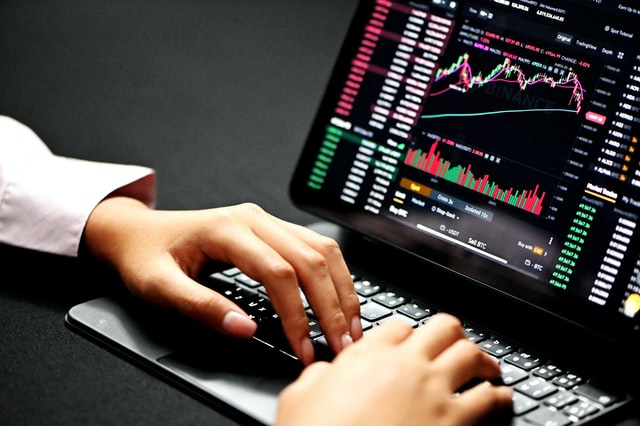

Summary
- Research shows our emotions are as influential as our rational analysis when deciding on an investment.
- Emotions can both enhance and impair judgement, so understanding and categorising them is key to measuring conviction in an investment.
- The Achilles’ heel of many investors is anticipated regret – control it and you will leap one step ahead.
Trading Under Uncertainty
How do you choose between Stock A and Stock B? Rational choice theory argues we make cold calculations based on the information available to maximise advantage and minimise loss. And in complex cases involving uncertain outcomes, you try to maximise your expected utility: you weigh the risk and reward against your risk appetite and preferences, then decide how to act.
It sounds simple, right? Except humans are rarely rational.
What if the sun is shining? It turns out, that influences your decision as well. 20 years ago, economists found a positive correlation between the amount of sunshine on any given day and stock market performance across 26 countries.
Why? The argument is simple: sunshine makes people happy, and that leads them to evaluate future prospects more optimistically – and to higher daily market returns. Likewise, winter blues can cause heightened risk aversion. And although the findings are old, they are part of a growing body of literature mapping the influence of emotions on decision-making.
How Regret Can Impact Our Decisions
Imagine, as Harvard Professor David Bell famously did, that you play the same lottery every day for a decade. You always pick the same combination of numbers, and you always lose. Yet one day, for whatever reason, you decide to mix things up.
So you pick a different combination of numbers. The statistical probability of winning remains unchanged, and the game’s risk-reward profile is the same. But consider if, on that day, your old numbers came up, and you missed the biggest win of your life. You would experience an overwhelming sense of regret.
More interestingly for investors, many of us tend to experience this regret in advance of a decision. And we can, unknowingly, incorporate it into our investments – trading off potential financial returns to limit potential regret.
Emotions as a Factor
Anticipated regret – or FOMO – is just one of many factors that can impact traders without their knowledge. We recently spoke to Founder and CEO of ReThink, Denise Shull about emotions on the trading floor. Consultant for Showtime’s BILLIONS and coach of Olympic champions, Shull explains that past experiences can influence our decision-making alongside our more rational analysis.
As Shull puts it, ‘there’s an unconscious emotional driver for why you get too big, too quick or in too early or out too early or whatever it is, or why you double down at the worst possible moments or why you give up on a position right before it works. There is a past emotional narrative that you experienced that you are unconsciously applying to your perception judgement in the market.’
And, she argues, it is possible to find and untangle those narratives if you are willing to analyse your emotions about a trade.
Emotions Are Not All Bad
One of the most influential academics to pursue the influence of emotions is Harvard Professor Jennifer Lerner. As she puts it, ‘emotions are initially elicited rapidly and can trigger swift action. But once activated, some emotions (e.g., sadness) can trigger more systematic thought.’ She has a widely followed framework that maps newly discovered emotional inputs (Chart 1).

Some emotion can impede decision-making. For example, fear of flying may influence us to drive somewhere instead, even though base rates for death by driving are much higher than flying over the same distance. But not all these emotional drivers are bad.
Research has found that patients with neurological impairments that reduce their ability to experience emotion make worse decisions. Without emotion – such as the anticipation of regret – participants selected riskier financial options over safer ones in a game of real money, even to the point of bankruptcy.
Maintaining Discipline
The key to capitalising on these emotions is recognising and categorising them as part of your decision-making process. As Shull explains, ‘neuroscience says there is no separation [between emotions and rationality], that the way to be most rational is to understand the actual data set of your feelings and emotions.’
And that requires drilling into your conviction for each part of your analysis. Break down where your confidence in that decision is coming from. Can you deepen it, or even question it? If you feel anxiety or fear towards a decision, gather more information – is the fear warranted? As Shull puts it, ‘In the hedge fund world, we will call that feeling conviction. It is, basically, how much do we believe our analysis? So that’s what matters.’
Ultimately, the key is to realise that there is no binary split between your emotional and rational brainpower. Descartes once said ‘I think, therefore I am.’ But as neuroscientist Antonio Damasio argued, perhaps we should instead say, ‘I feel, therefore I am.’
Matthew Tibble is Commissioning Editor at Macro Hive. He has worked as an editorial consultant and freelance editor for companies such as RiskThinking.AI, JDI Research, and FutureScape248.
